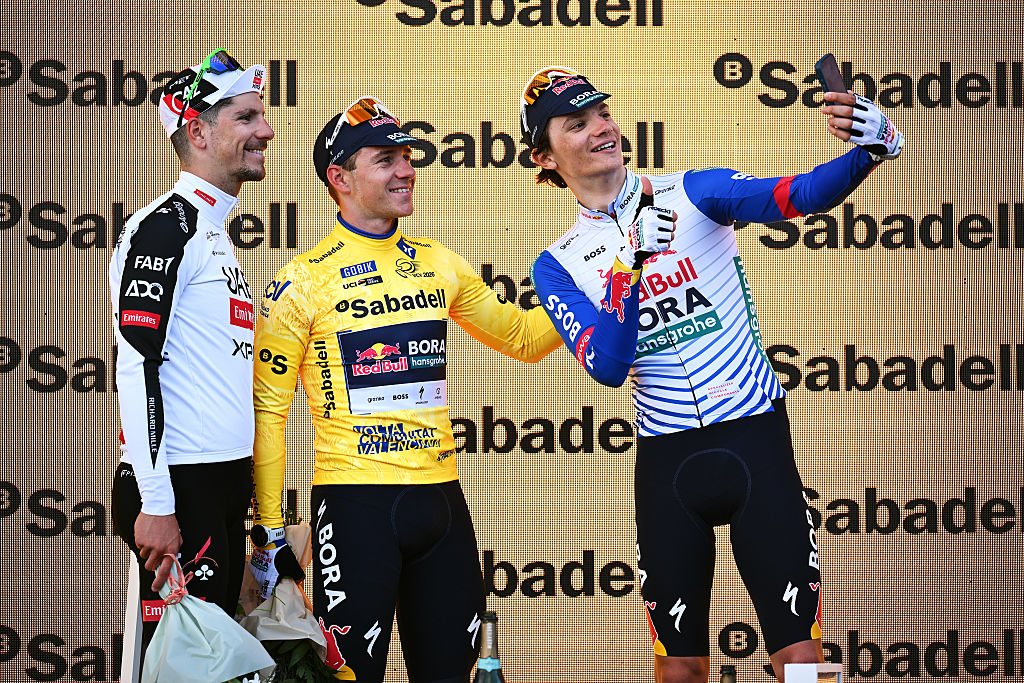Off-road division: Quick-Step boss Lefevere not keen on Paris-Tours gravel tracks
Belgian says that farm tracks have 'nothing to do with road racing'
The latest race content, interviews, features, reviews and expert buying guides, direct to your inbox!
You are now subscribed
Your newsletter sign-up was successful
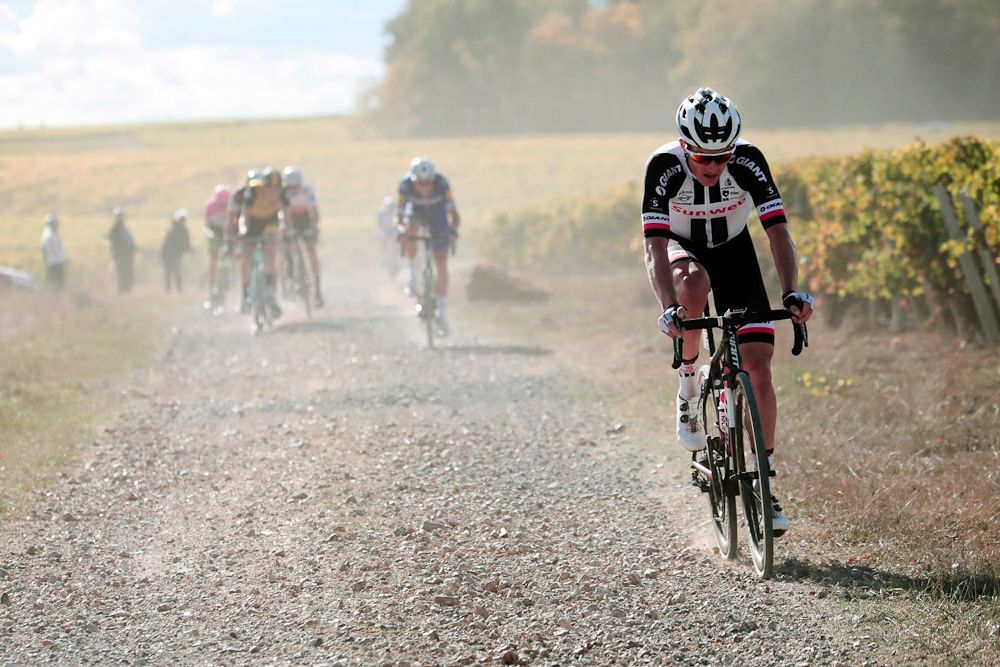
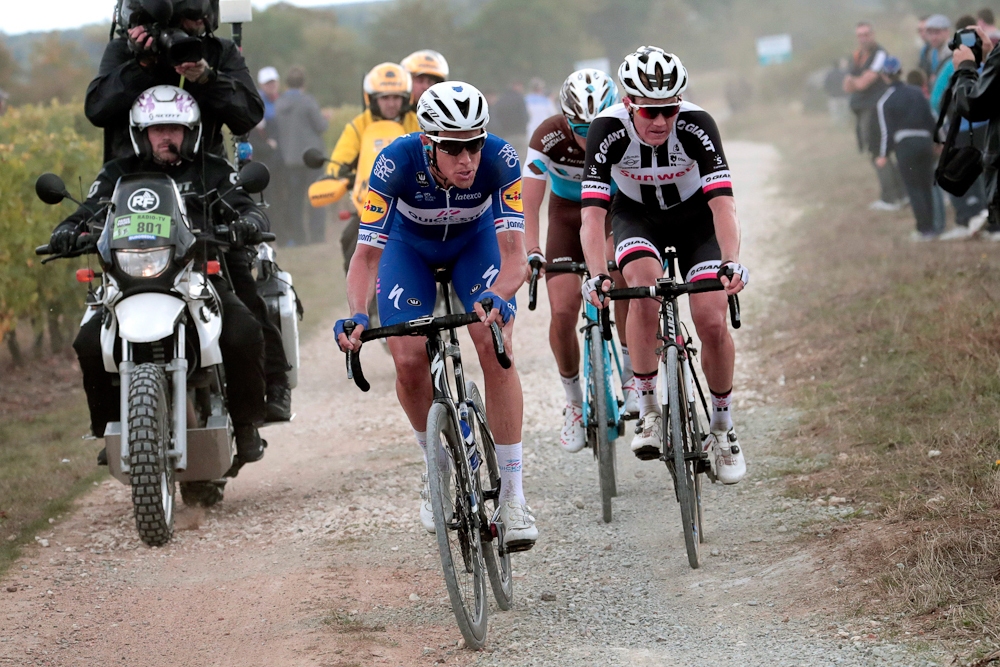
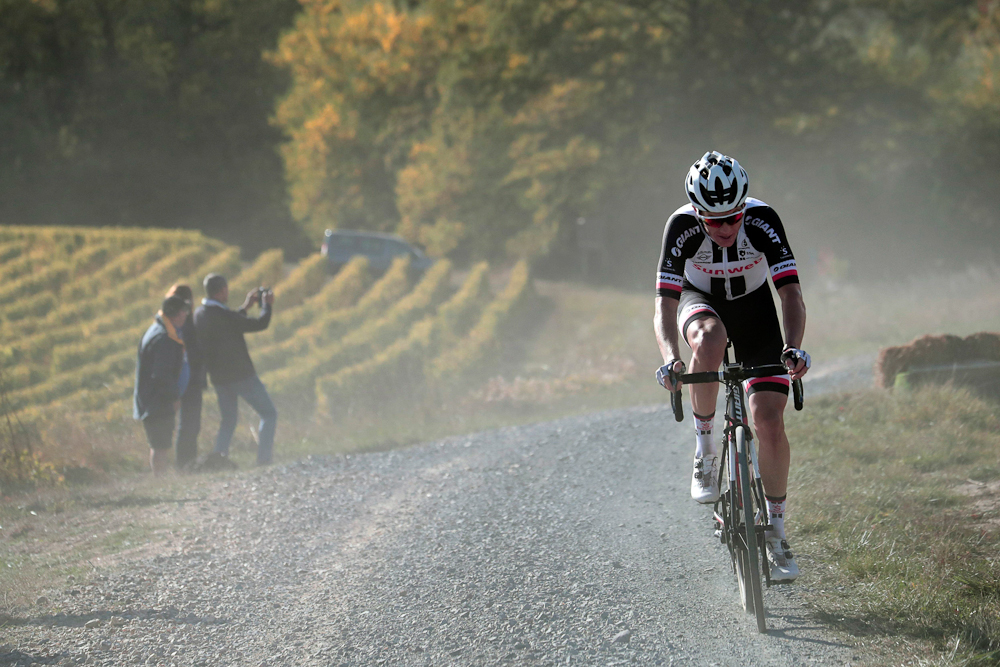
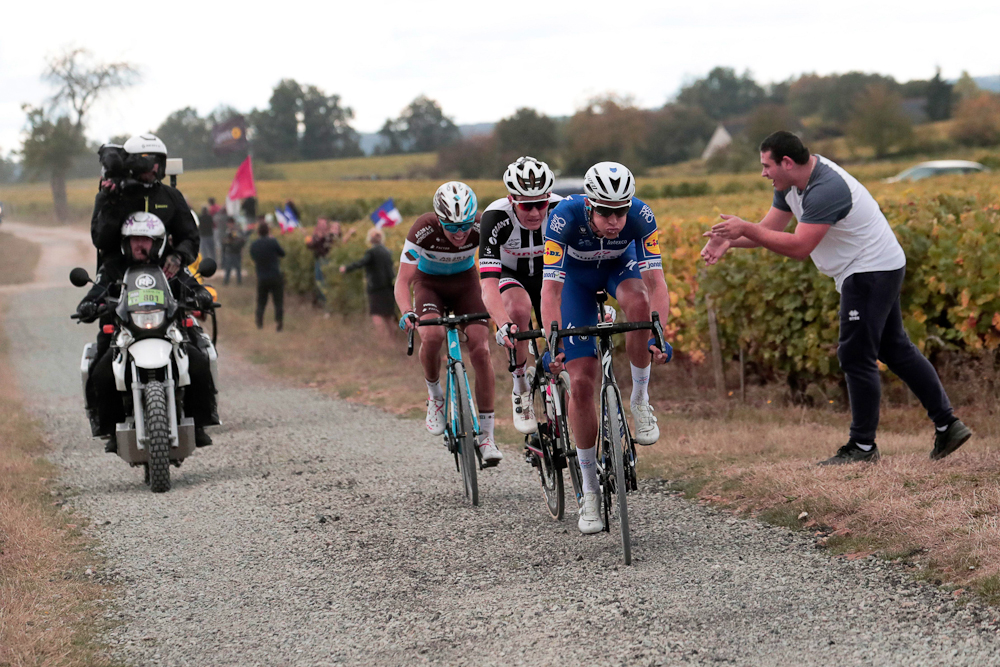
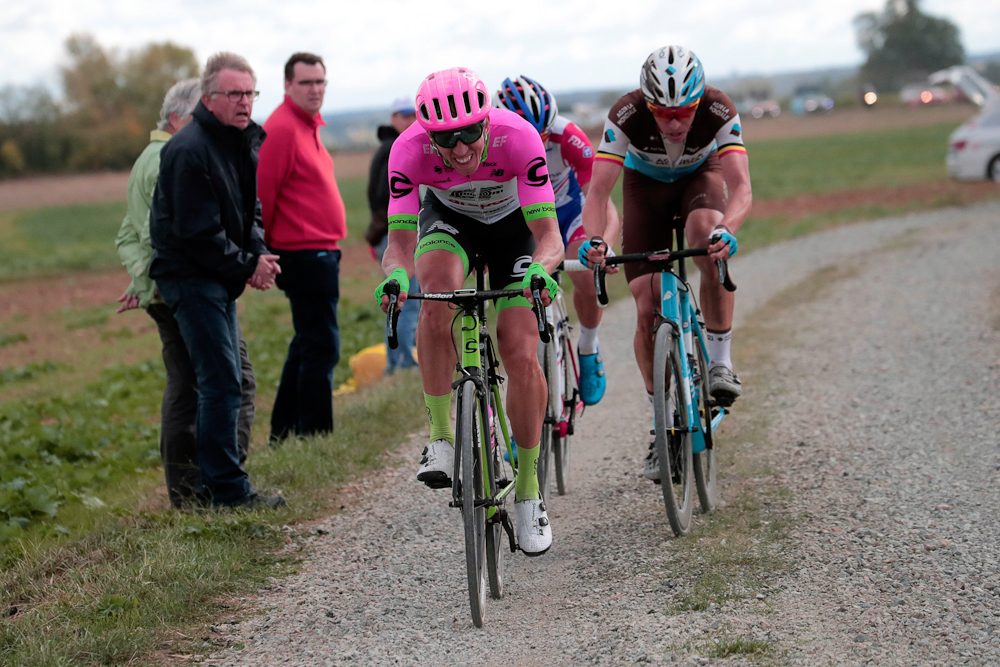
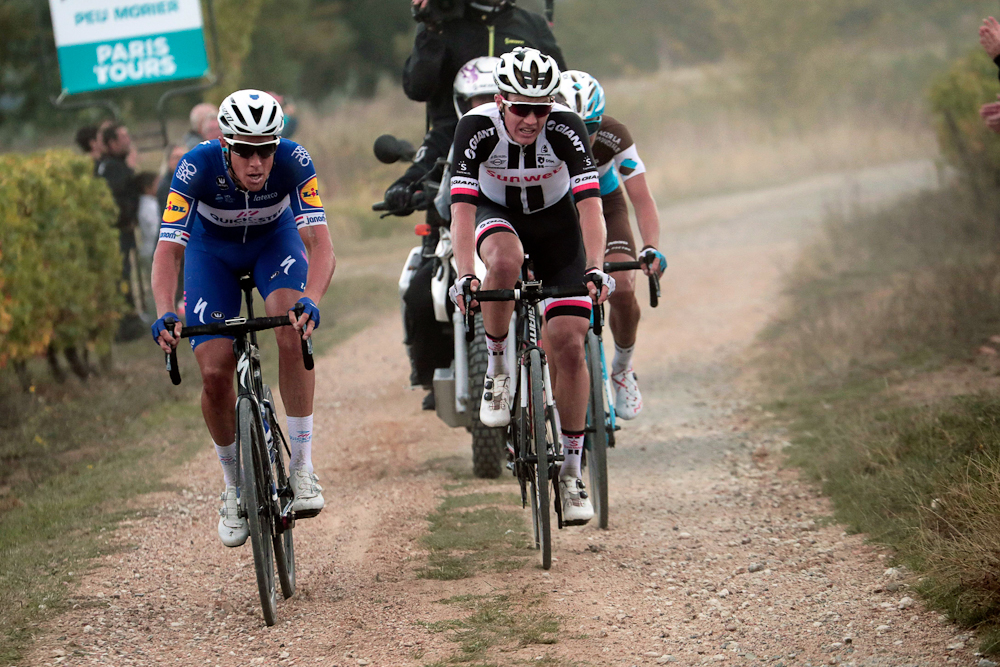
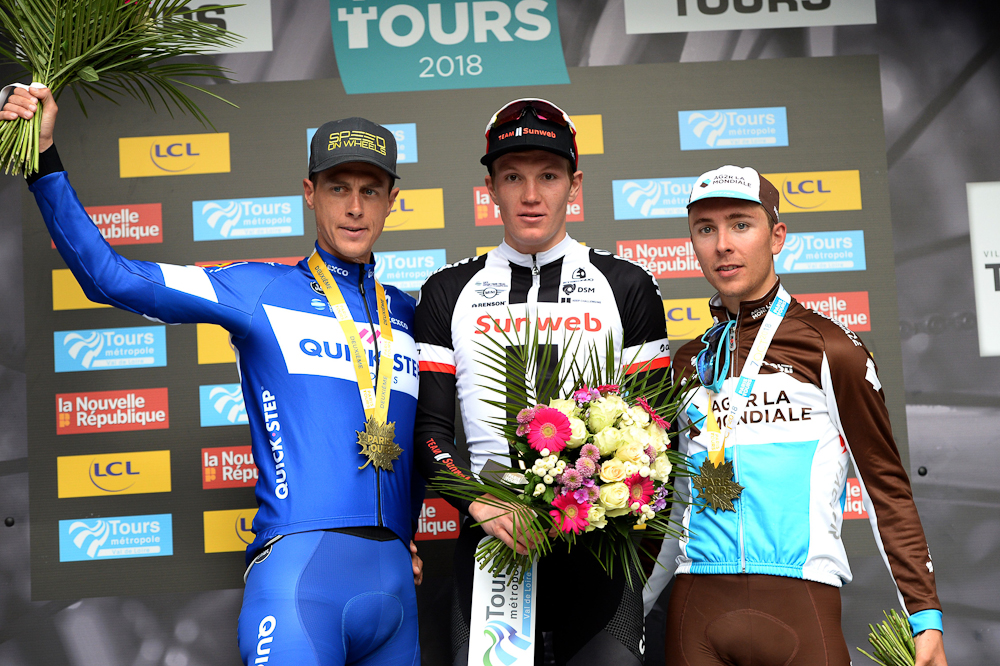
In the aftermath of Sunday's changed route for this year's Paris-Tours one-day race, which deviated from its usual parcours to take in nine sectors of gravel vineyard tracks inside the final 60 kilometres, the reaction was swift – and mixed.
Quick-Step Floors team boss Patrick Lefevere's pessimistic take on what was an exciting race was all the more surprising in that his Belgian team's bread and butter is the hard one-day races in northern France and Belgium, including Paris-Roubaix and the Tour of Flanders, in which Lefevere's men have often dominated in the past couple of decades, with winners including Niki Terpstra, Tom Boonen, Philippe Gilbert and Stijn Devolder.
"This will be the last time that Quick-Step do this race, even if we win," Lefevere tweeted while the race was still in progress. "[It has] nothing to do with road cycling."
His stance was even more surprising again when you consider that Lefevere is somewhat of a wine buff, and should have at least enjoyed the scenery as Paris-Tours made its way through the Vouvray appellation vineyards.
Quick-Step didn't win: Terpstra, riding his last race for the team before his move to French team Direct Energie for next season, took second place to winner Søren Kragh Andersen of Team Sunweb.
The Dane, who had finished second on Paris-Tours' 'normal' course to Matteo Trentin last year, was, unsurprisingly, a convert to the new route.
"The parcours was awesome. I loved it," he said. "It's my first Classic-style win, and I couldn't be happier. I didn't stop to enjoy it until 100 metres to go. The last 10 kilometres were super hard, but it was completely worth it."
The latest race content, interviews, features, reviews and expert buying guides, direct to your inbox!
It was an enthusiasm echoed by EF Education First-Drapac's Sep Vanmarcke, who put out a very cheery tweet after the race.
"Had a lot of fun today in Paris-Tours on the new final! I liked it!" wrote Vanmarcke. "Felt a bit like Paris-Roubaix. Didn't have high expectations today because I’ve been ill last 10 days and couldn’t train much, but sometimes you can surprise yourself. So I'm happy with this performance."
The 'fashion' for gravel riding, which has steadily taken hold over the past few years, has become somewhat of a leveller among amateur riders in that practitioners are often more about the journey than any result – although plenty of amateur gravel races exist, with more springing up all the time.
But the slightly gentler nature of 'gravel grinding', versus out-and-out road racing, allows riders to appreciate their surroundings, often on safer – read, traffic-free – unmade roads and tracks.
Most of the big manufacturers now produce 'gravel bikes', too, which aren't too dissimilar to cyclo-cross bikes, and feature disc brakes, and clearance for wide tyres, and often provision for adding racks for off-road touring, with an accent on fun and comfort rather than pure speed.
Plus, everyone's favourite pro races these days are Paris-Roubaix and Strade Bianche – you can keep your Tours de France and Giri d'Italia – with the former featuring big, bad cobbled sectors, and the latter, newer-kid-on-the-block race boasting sections of Tuscan 'white roads', more in line with the gravel riding craze.
The Strade Bianche even grew out of an amateur gravel event – L'Eroica – which started in 1997, and which takes riders on epic adventures on the 'white roads' around Gaiole in Chianti in Tuscany, and has grown in popularity with each year that passes. This year's Eroica just happened to take place on Sunday, on the same day as Paris-Tours with its revamped route.
Many would argue that the cobbled roads that feature at Roubaix are a significantly different kettle of fish to gravel riding, which is certainly the case, but the 'spirit' remains the same: riders, riding or racing bikes, on the kinds of surfaces that are a throwback to a time before tarmac.
And the TV pictures really were spectacular at Paris-Tours this weekend, with the riders winding their way through lush, green vineyards en route to the traditional finish on the Avenue de Grammont in Tours.
However, like Lefevere, AG2R La Mondiale's Oliver Naesen wasn't really a fan of the new route.
"I thought the tracks were a bit much," he said on his team's website. "A lot of riders punctured due to the sharp stones, which made the race a bit of a lottery.
"Let's just say that it was an experience," Naesen said.
"The new format of the race definitely made for a spectacular final," was the opinion of Dimension Data's Reinardt Janse van Rensburg, who was the team's highest finisher in 34th place, although he felt he would have finished a lot higher up the order if it weren't for those pesky gravel sectors.
"Unfortunately luck wasn't on our side, as me, Julien [Vermote], Edvald [Boasson Hagen] and Nic [Dougall] all suffered punctures. Bernie [Eisel] gave me a wheel after my first puncture, but after a second one, there wasn't much we could do anymore.
"It's very disappointing right now, because I felt really good, but that's racing I guess," he said, and indeed it is.
"If you're riding well, the course is nice," added LottoNL-Jumbo's Jos Van Emden, who finished in 10th place. "But some of the paths were too bad."
Groupama-FDJ's Arnaud Démare, who was third at Paris-Tours in 2013 and second in 2016 on the old course, wasn't really a fan, either, but at least took the new course in good humour, even cracking a rather good play-on-words wine joke after having come home in 14th place.
"It was a lovely parcours, and it must have looked great on TV, but I preferred the old route, which was just as good and still spectacular. Our bikes weren't really set up for those vineyard tracks, though, and the riders were exploding in bunches of twenty," he wrote, adding both a smiley face and a glass of wine emoji – and quite rightly pleased with his use of 'bunches', with the French word for twenty – vingt – not too dissimilar to the French word for wine: vin.
